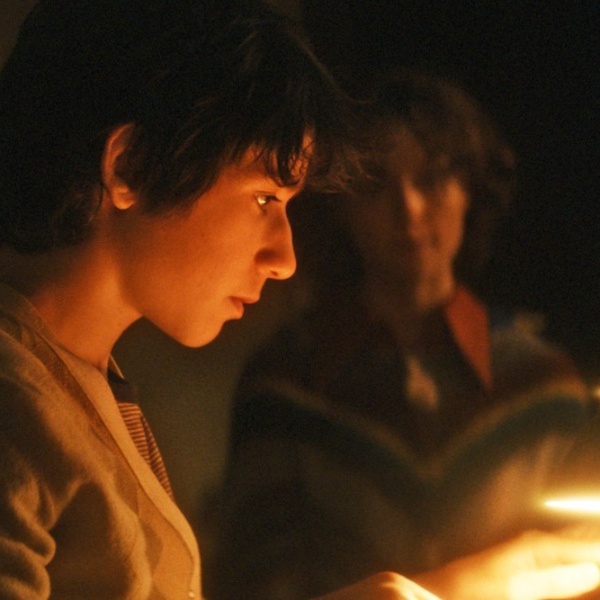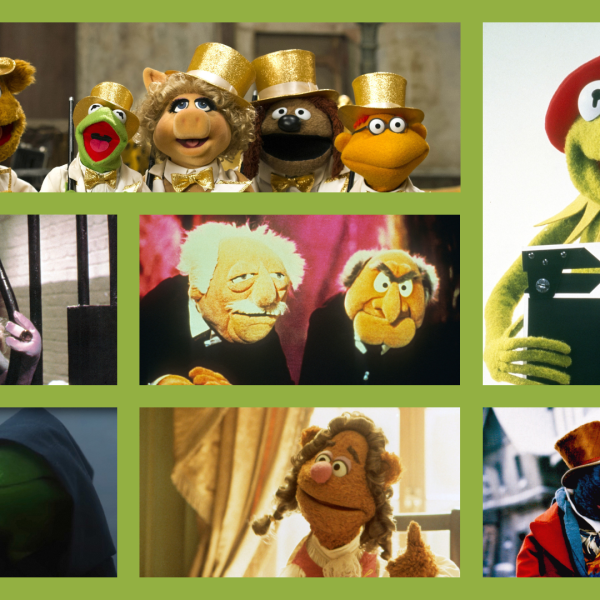
The following is a reprint of our review from the 2010 SXSW Film Festival.
“Bridesmaids” unveiled at SXSW as an announced work-in-progress screening, however, as director Paul Feig introduced the film, he revealed that the picture was only missing a couple of minor sound edits and color corrections, but was not going to change in any significant way and that, except for a couple of sound cues here and there, it was pretty much the film that would be hitting theaters on May 13th.
You can always depend on the kindness of strangers, so goes the old saying. But, to some, that phrase relies on the definition of the word “stranger.” That word might pertain to Annie (Kristin Wiig), who no longer wants to be regarded as such. She is kicked out of bed by her sometime-lover, but doesn’t even have enough of a familiarity that she knows how to leave his property. She is absent to her mother, who supports her but insists on regaling her with AA stories that have little bearing on anyone’s lives. And working the counter at a jewelry shop, she encounters customers every day that have found a special someone, compounding her loneliness.
When “Bridesmaids” kicks off, Annie is relaying her struggles to lifelong friend Lillian (Maya Rudolph), but her gentle judgment of Annie’s choices is soon foregrounded by a major life choice: Lillian is getting married. To Annie, this world is entirely alien, and she wishes the best for her friend, understanding that this makes the two of them almost entirely different individuals.

As such, the defensive Annie feels betrayed by the new shades added to Lillian’s life, and her role in planning the pre-wedding festivities is usurped by Helen (Rose Byrne), a satellite friend who has taken the point (wo)man role in the festivities. To Annie, the threat is multi-dimensional — not only is Helen younger and more conventionally pretty than Annie, she is also naturally competitive. Helen, who we learn has married into a family of two preteen children who resent her, seems desperate to belong, enough so that she abuses her largesse in order to make sure she hasn’t planned a wedding as much as coordinated a cosmic anointment.
Most interestingly, the divide between Annie and Helen stems from class resentment. Annie continues to share an apartment with a sibling duo, working a menial job and struggling to pay rent. But she has to endure the indignity of attending a Helen-curated party. The affront isn’t that the driveway is so long, or that halfway through stands a butler with a glass of lemonade. It is that Annie does not even have a cupholder in her two-door to accommodate the drink. And, of course, it is delicious.
Annie responds poorly to this challenge because she is believably self-destructive. While the film follows the standard outline of a studio comedy (one unusual grossout scene involving several bodily fluids unfortunately plays more like a “Trainspotting” outtake), there is a truth and an ugliness to Annie’s self-sabotage. It leads her to fight off the idea of being with a kindly local cop (an adorable Chris O’Dowd) because she doesn’t like herself enough to believe that affection can be taken at face value. Perhaps it’s the handsome brute (Jon Hamm) who ruffles her pillows on infrequent nights, whispering sweet post-coital nothings like, “I really want you to leave right now,” followed by, “I’ll miss you.” 
There’s a station-to-station tedium to some of director Paul Feig’s comedy setups, leading to comic sequences with a mandated sense of anarchy, usually involving the ability of Movie Alcohol to turn average-minded drinkers into Wacky Troublemakers. But, as per all producer Judd Apatow’s collaborators, he allows actors the space to fill out their characters and push them beyond their own surface vulnerabilities. Unlike previous Apatow-related pictures (there is a formula), the movie doesn’t grind to a halt for a dramatic beat, instead interweaving the small tragedies within character-based humor.

As co-writer, Wiig has control of her character’s emotional journey, but the results remain surprising. A talented and attractive comedienne, Wiig has yet to find the appropriate role to hone her talents onscreen, which makes her deceptively complex work in “Bridesmaids” such a revelation. Wiig’s performance brings to mind two particularly distinct turns by very different actors. In her moments of manic comic invention, Wiig approaches the overlooked work of Jim Carrey in “Liar, Liar,” the rare performance where he played the otherworldly farcical elements of his everyman far enough that an unhinged emotional truth emerged in the otherwise pedestrian picture. A clown, for sure, but the self-aware emotional mess that the film tries to obscure, giving that picture an unusual depth more than a decade after the film’s release.
The other performance is last year’s finest, belonging to Lesley Manville in Mike Leigh’s “Another Year.” Feig’s film shares an unusual strand of DNA with Leigh’s films, which traffic in social realism in capturing the strength we find to carry on in the face of common societal pressures. Manville tapped into the crushing sadness of a person unknowingly abusing the fact that she is well-liked, and in some cases enabled, by slowly descending on a path of self-abuse, with everyone’s desire to rescue her clouded by their own awareness of their issues.
Of course, there’s also depth to the comic richness in “Bridesmaids” not seen in Leigh’s work. A standout is Melissa McCarthy, who, early on, seems like a caricature. An overweight performer, McCarthy is encouraged to wear the most asexual wardrobe in the film, and in early scenes is clearly the most flatulent, libidinous and crude. The film, and McCarthy, slowly subverts these impressions, as she gains depth as the most selfless member of the bridesmaids, understanding that you don’t receive your own happiness as much as you make it. Could do without the farts, but not without the heart. [A-]




